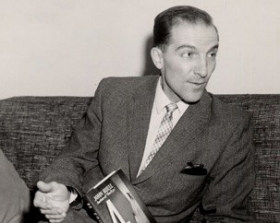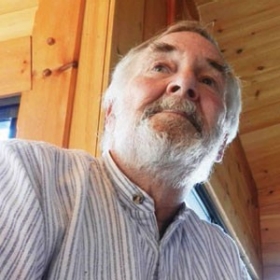In 1959, when his novel The Pyx was published, John Buell was a 32-year old professor at Loyola College, where I was a first-year student and he saved my life.
Throughout my spotty adolescence I had written a great deal of stuff that I believed to be poetry. Professor Buell was kind enough to show some of my work to a real poet, his friend Daniel Berrigan, S.J. It was Father Berrigan’s considered opinion that I should stick to prose; thus I was spared the wretched existence and early suicide that every fake poet deserves.
Loyola had just instituted an honours English program. I took, and found stimulating, and did rather badly in, two of Professor Buell’s classes. He was a brilliant teacher, provocative, strict, amusing, sometimes funny, always intense. He always wore a grown-up tweed jacket and tie to class. Scruffy as we were, we did not think of him as a pal.
 John Buell at Loyola college in the 1960s; The Pyx (1959) was the first of his five novels
John Buell at Loyola college in the 1960s; The Pyx (1959) was the first of his five novels
 Sean Kelly was an editor of National Lampoon magazine and had a successful career as a writer. He now teaches in the humanities and media studies department of the Pratt Institute in Brooklyn, N.Y.
Sean Kelly was an editor of National Lampoon magazine and had a successful career as a writer. He now teaches in the humanities and media studies department of the Pratt Institute in Brooklyn, N.Y.